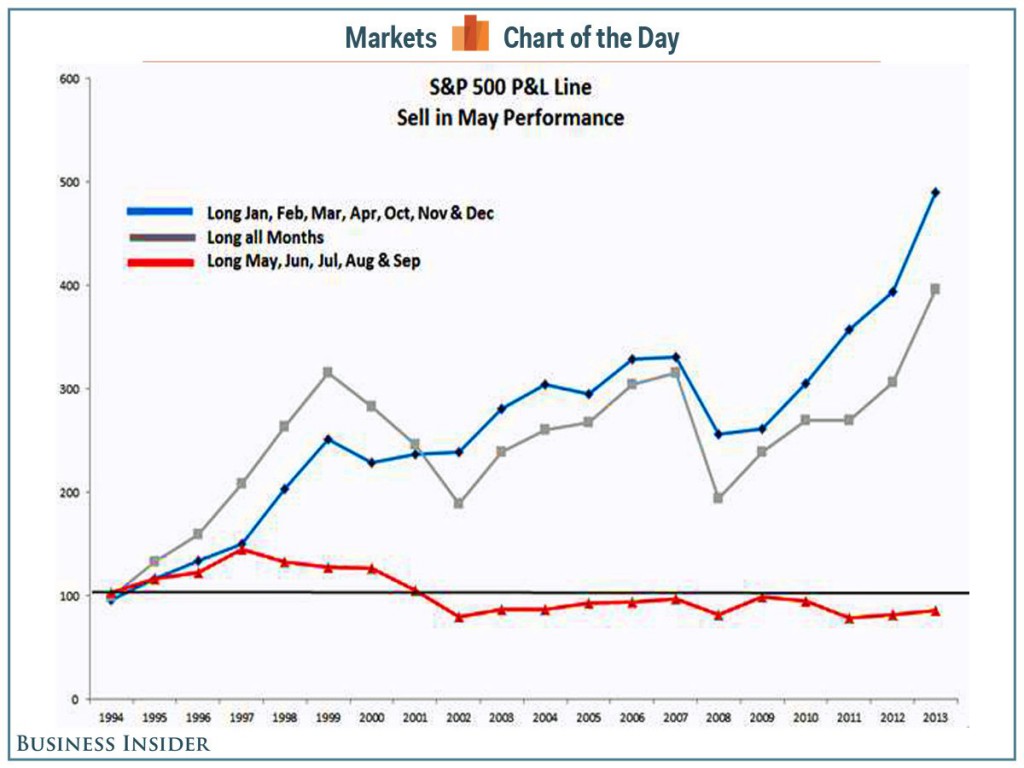Wouldn’t it be just so easy if it were true? Well, if you believe the academic research, this odd anomaly does seem to hold up historically. There are a number of supposed stock market anomalies based on seasonality – The January Effect, the Monday effect, the Holiday Effect, the End of the Month Effect. These effects are usually popularized anecdotaly and ultimately disproved by academic research. Sometimes the anomalies are persistent but practically impossible to exploit given market restrictions, trading costs, etc.
One such anomaly, the Sell in May and Go Away Effect (sometimes referred to as the Halloween Effect), suggests investors would be better off liquidating their stock portfolios at the end of April and buying back at the beginning of November. The most recent academic research paper from 2013 surveys the prior research done, and conducts new research to find that this anomaly, unlike some of the others, actually is real and persistent outside of the periods when the original studies were done. They find stock returns to be 10% higher during the November through April period than in the rest of the year. How is this possible? The authors suggest there is seasonality in investor risk appetite that drives this phenomenon. Here is a chart from Business Insider that shows the performance of a sell in May strategy between 1994 and 2013. In fact the research shows it has worked since 1950.

So should we be selling everything at the end of this week? Markets are once again near peak levels, and there doesn’t seem to be much on the horizon to spur yet higher returns, right? Seems like the perfect year to sell in May and go way, no? No, stand down! Historical patterns, no matter how persistent, won’t necessarily repeat themselves in the future and there isn’t really a good theoretical reason why this anomaly should exist. The bottom line is that if you mine the data hard enough, chances are you’ll find a technical anomaly that still “works”. It doesn’t mean it will continue to work. We’re happier with “Re-balance in May” or any other month for that matter. It’s not quite as racy, but it works.

